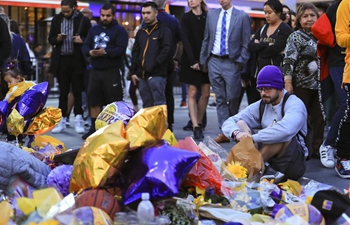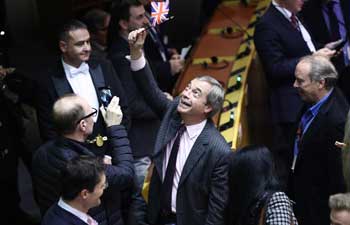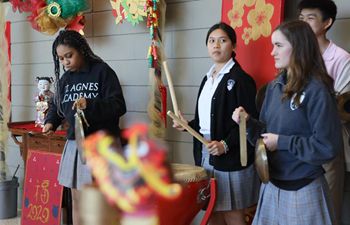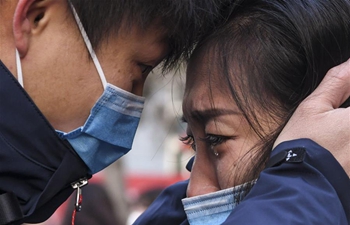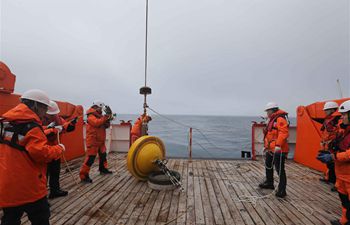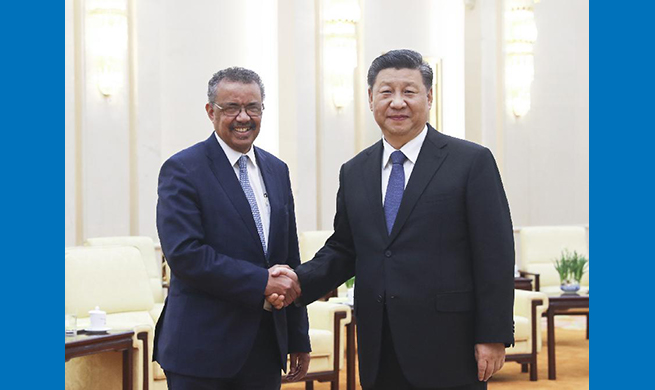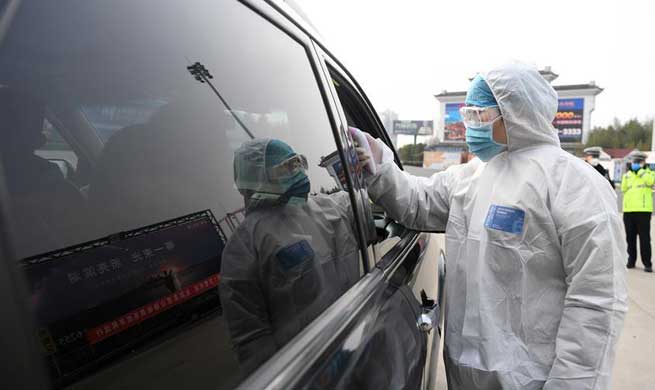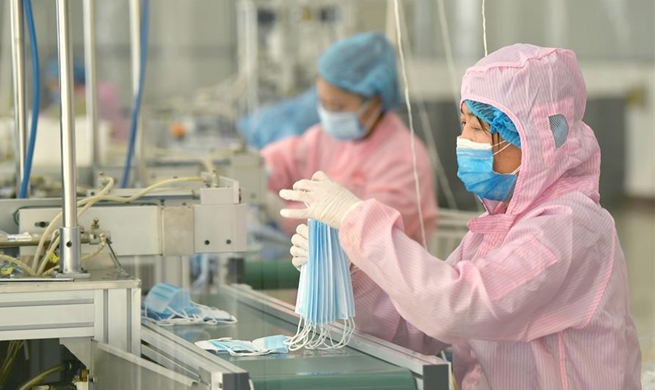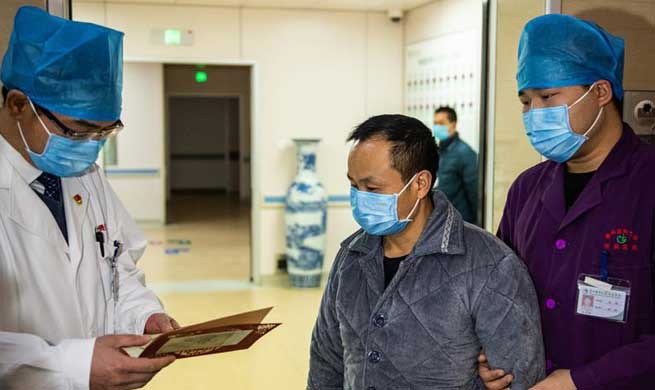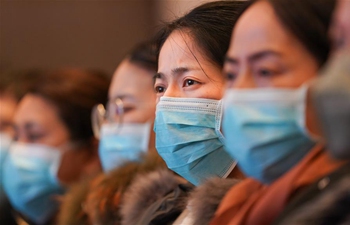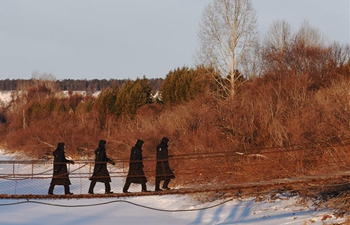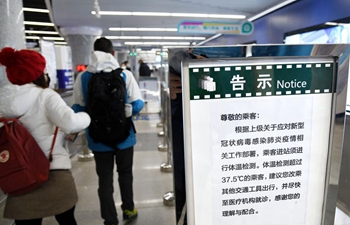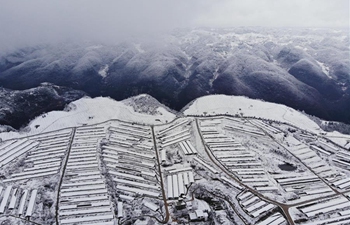LONDON, Jan. 30 (Xinhua) -- The Brexit Withdrawal Agreement's Protocol on Ireland/Northern Ireland requires necessary checks in the Irish Sea, which will cause new problems to both Britain's domestic and international trade, an expert has said.
"For trade between Great Britain and Northern Ireland, there is a new border in the Irish Sea. That is going to have to be administered and it's going to be a serious border for nearly everything," L. Alan Winters, professor of Economics and director of the UK Trade Policy Observatory (UKTPO) in the University of Sussex, told Xinhua in a recent interview.
In an analysis published last month, the former researcher of the World Bank and economist of the British government estimates that, under the Protocol, about 75 percent of Northern Ireland's imports of goods from other locations, including Great Britain, would be subject to European Union (EU) tariffs on their arrival in Northern Ireland.
Under the Protocol, the analysis points out, Northern Ireland's imports from the EU, including the Republic of Ireland, would face no tariffs; but among imports from elsewhere, the Protocol requires that any goods deemed at risk of moving into the EU should be subject to the tariffs of the EU rather than those of Britain.
Relying on a range of statistical data and informed assumptions, the analysis breaks Northern Ireland's imports down according to the risk criteria in the Protocol and finds that about 82 percent of Northern Ireland's imports from non-EU countries and approximately 64 percent of imports from Great Britain would face EU tariffs. Overall, around 75 percent of all Northern Irish imports will pay the EU tariff on entering the region.
"For international trade, goods that are arriving from the rest of the world into Northern Ireland will face a sort of mixture of UK and EU tariffs, and will also have to meet EU regulations in a lot of cases," Winters said.
"So there's a complication there that might make Northern Ireland a rather unattractive prospect for trade, just because there's uncertainty," he continued.
He noted that the Protocol contains about 56 pages of EU regulations that will apply in Northern Ireland.
"So if you're sending a good to Northern Ireland you have to know, are you obeying EU regulations or are you obeying UK regulations. That is true for goods even that are going to stay within Northern Ireland...Northern Ireland has to adhere to the EU regulations included in that large list in the Protocol," Winters explained.
For British Prime Minister Boris Johnson, the "border" in the Irish Sea would be without checks after Brexit as long as the Britain-EU Free Trade Agreement (FTA) was concluded.
"The only circumstances in which you could imagine the need for checks coming from GB (Great Britain) to NI (Northern Ireland), as I have explained before, is if those goods were going on in to Ireland, and we had not secured -- which I hope and am confident we will -- a zero-tariff, zero-quota agreement with our friends and partners in the EU," he said earlier this month.
However, Johnson is expected to deliver a speech next week saying he is willing to accept border checks after Brexit, with sovereignty prioritised over frictionless trade, according to English newspaper The Daily Telegraph.
Winters also warned that the FTA between Britain and the EU won't solve the problem completely.
"The FTA between the UK and the EU will remove the worry of tariffs. For the goods going from Great Britain to Northern Ireland and that might then go on to the Republic of Ireland, there will be no tariffs...but they will be subject to rules of origin," said Winters.
He explained that it has be proved that the good from Great Britain to Northern Ireland is originated in Britain and in compliance with the rule of origin, because there's no actual border between the Republic Ireland and Northern Ireland.
For example, he said, if Britain has signed a free trade agreement with China, goods imported from China could be tariff-free. But if those goods are sent from Northern Ireland into the Republic Ireland, or into other EU countries, "the rule of origin will capture them in the Irish Sea," the expert said.
"Ultimately, rules of origin are backed up by the ability to check products on the border and charge them a tariff," he said, it is necessary to have some capacity to stop the goods and do all the usual checks on the border in the Irish Sea.
Echoing Winters, EU chief Brexit negotiator Michel Barnier recently warned such checks are "indispensable".
"In agreeing the [Northern Ireland] protocol, the UK has agreed to a system of reinforced checks and controls for goods entering Northern Ireland from Great Britain ... I know what is written in this text," said Barnier in a recent speech at Queen's University.
